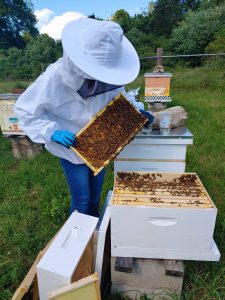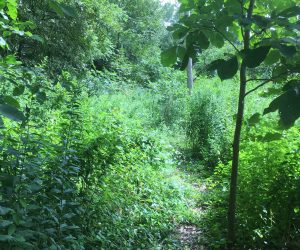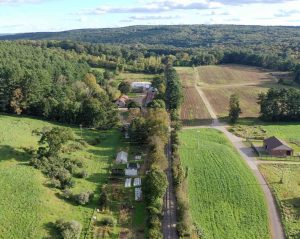Sustainable Community Food Systems
We are proud to host a new Environmental Studies Minor here at the farm: Sustainable Community Food Systems!
The SCFS Minor offers a unique opportunity to connect theory and practice through classroom-based learning and hands-on experiences in the local community. Focusing specifically on the issues of food sustainability, environmentalism, and social justice, students gain vital skills to become leaders for a more equitable and sustainable future. More information can be found on the SCFS website: https://scfs.environment.uconn.edu/
Hear from Students That Minored in Sustainable Community Food Systems
Internship and Independent Study
Spring Valley is a living laboratory, where UConn students of all majors are welcome to pursue their curiosity through Internships and Independent Study for 1-4 credits per semester. We are happy to connect you with an appropriate professor for your project in CAHNR, Plant Science and Landscape Architecture, Geography or Sociology.
Some current ongoing projects we could use some help with are:
- Designing and building an ADA-accessible composting toilet for farm visitors.
- Developing solar infrastructure on the farm (see our Net-Zero Energy tab).
- Completing construction of our walk-in cooler for expanded cold storage for harvested crops.
- Permaculture gardening in our Edible Forest Garden (see more in our Edible Forest Garden tab).
If you have any ideas for a project or would simply like to spend more time in the field (and get some credit for it!), please contact our farm manager.
Scroll down to read about some fascinating projects students have completed in the past. Previous Independent Study projects conducted in the Edible Forest Garden are housed under that tab.
Rafael Concepcion – School of Fine Arts graduate program
Nearly every morning, I would drive by a sign that read "Spring Valley Student Farm" which featured an arrow pointing down a long, dark, winding driveway. An ambient, warm glow was radiating from its base. Provoked by a general desire to snoop around, I set up an appointment to visit with the farm's manager. I brought my camera. Upon my first trip, I was met with a dynamic, lively group of young people whose reasons for participating in the sustention of the farm were as varied as the farm itself. Some fervently believed that the future of agriculture laid in these grounds, others seemed as though they simply wanted a close-knit community to be a part of. As the days rolled into weeks, I continued photographing in and around this farm, motivated by a desire to depict the farmers’ processes and routines, as well as how the personality of this place is determined by those who inhabit it.
Note: Hover over image to click through photos.
Megan Chiovaro – Psychological Sciences
 As a graduate student in the Department of Psychological Sciences here at UConn, my research focuses on collective intelligence, the ability for groups to work together productively without being overseen by a leader. Honeybees work collectively to gather resources, build homes, relocate to new homes, and defend against predators. All of these phenomena happen without supervision (the Queen bee does not instruct the others on what to do). My research asks some very broad questions such as: (1) How are they able to do this without a leader? (2) What is it about the way they communicate that makes them so successful? (3) What can humans and societies learn from this example of successful group coordination and how can we apply it to our everyday lives?
As a graduate student in the Department of Psychological Sciences here at UConn, my research focuses on collective intelligence, the ability for groups to work together productively without being overseen by a leader. Honeybees work collectively to gather resources, build homes, relocate to new homes, and defend against predators. All of these phenomena happen without supervision (the Queen bee does not instruct the others on what to do). My research asks some very broad questions such as: (1) How are they able to do this without a leader? (2) What is it about the way they communicate that makes them so successful? (3) What can humans and societies learn from this example of successful group coordination and how can we apply it to our everyday lives?
9/21/20 - Check out the UConn Today feature of Megan's honeybee work at Hartford's Keney Park.
Kaitlyn Goodridge – Plant Science and Landscape Architecture

Korean Natural Farming is a system involving the cultivation of indigenous microorganisms (IMO) from forested areas near agricultural land and introducing them to agricultural fields. This concept is based off the idea that the addition of IMOs to an agroecosystem will provide benefits to soil properties, plant health, and crop yield. Soil microbiology is a fairly unresearched topic in soil science when compared to other subjects such as soil fertility or soil chemistry. It is known that microorganisms play a beneficial and important role in our agricultural fields, but much is still unknown about their potential.
I decided to perform a research study to see if IMO applications to fields provide any response to either microbial activity in the soil or plant yield. The results from this study show no conclusive correlation between IMO application and increased microbial populations since each plant species had varying results. However, this does suggest that there is a possibility that IMO applications affect the soil of various plant species differently.
The use of IMOs may be an option for many farmers, especially smaller farmers who cannot afford as many resources or those who want to be more sustainable. The cultivation process is relatively inexpensive and easy, so it is a feasible process for many. Many farmers throughout the world already use this practice and it is becoming increasingly popular in the United States. For this reason, further studies should be conducted on this process.
Air Quality Research – Chemical Engineering
 Since 2017 undergraduate students in Dr. Kristina Wagstrom’s Chemical Engineering lab have used SVSF as a living laboratory for their air quality monitoring projects. Several undergraduate students have been involved with the project over the last three years. This research is still ongoing at SVSF.
Since 2017 undergraduate students in Dr. Kristina Wagstrom’s Chemical Engineering lab have used SVSF as a living laboratory for their air quality monitoring projects. Several undergraduate students have been involved with the project over the last three years. This research is still ongoing at SVSF.
Here is what Kamil Wielechowski wrote about the research:
In collaboration with the Center for Environmental Science and Engineering (CESE), the Computational Atmospheric Chemistry and Exposure (CACE) lab is working on assessing pesticide and herbicide drift on farmlands on campus, specifically the SVSF. Use of pesticides and other chemicals in neighboring farms undermines the organic practices of the SVSF, and it is important to determine the extent of their drift. With help from SVSF, the CACE lab was able to set up air, water, and particle monitors to gather data over the course of two summers, with hopes to continue the project and arrive at conclusions in the near future. This research is partially funded through the Provost Academic Plan Grant award of 2017.